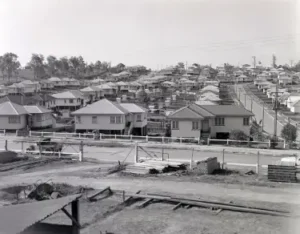
Description
Addressing Australia’s housing affordability crisis by prioritizing public housing on government land.
Introduction

Australia’s housing affordability crisis continues to deepen as land sales to private developers drive up prices. In Sydney, Melbourne, and Brisbane, prioritizing public housing on government-owned land is crucial. This article explores the importance of using federal and state-owned lands for public housing, presenting it as a fair and sustainable solution to the current housing shortage.
The Urgent Need for Public Housing
Understanding the Housing Crisis
Australia is grappling with an acute housing affordability crisis. The sale of government-owned lands to private developers has significantly contributed to rising housing costs, putting homeownership out of reach for many. The dream of owning a home has become elusive for a substantial part of the population, creating social and economic challenges that need urgent attention.
Impact of Land Sales on Housing Prices
When government land is sold to private developers, it often leads to the construction of high-end properties that only the wealthy can afford. This practice worsens the housing crisis, leaving low and middle-income families struggling to find affordable homes. The resultant shortage of affordable housing drives up rental prices, further straining the finances of those already living on the edge.
Government-owned land should serve the public interest, yet the current approach prioritizes profit over people. This has led to an increase in homelessness and housing insecurity, with many Australians unable to secure stable and affordable living conditions. The ripple effect of these practices affects the broader economy, increasing the burden on social services and community resources.
A Call for Government Action
Using Government Land for Public Housing
The Australian government can reverse this trend by using federal and state-owned lands to develop public housing. This initiative could provide significant relief to those struggling with housing affordability, offering a fairer and more sustainable approach to urban development.
Benefits of Developing Public Housing
Developing public-owned lands for housing offers multiple benefits:
1. Affordable Housing: Homes can be sold to first-time buyers at cost or leased at reasonable rates, making homeownership and affordable rentals accessible to a broader demographic.
2. Economic Stimulation: The construction sector would see a boost, creating employment opportunities and stimulating the economy. By investing in public housing projects, the government can drive job creation and foster economic growth, particularly in the construction industry.
3. Social Equity: Prioritizing public housing ensures that the less fortunate have access to safe and affordable homes. This approach promotes social inclusion and reduces the wealth gap, fostering a fairer society.
Government action to develop public housing on its lands is not just a solution to the housing crisis but a step towards a more inclusive and just society. By focusing on public welfare, the government can address the immediate needs of its citizens while laying the groundwork for long-term economic stability and growth.
Prioritizing Public Good Over Private Profit
The Need for a Shift in Focus

The current practice of selling public lands to private developers primarily helps the wealthy. A government shift towards developing these lands for public housing would ensure accessible and safe housing for all Australians. This change in policy would signal a commitment to public welfare over private profit, addressing the housing crisis effectively and equitably.
Ensuring Accessible Housing
Developing government-owned lands for public housing is a step towards ensuring that housing is accessible to all, regardless of income. This approach prioritizes public welfare over private profits, addressing the housing crisis effectively. It ensures that government resources are used to help the majority, rather than a privileged few, creating a more balanced and fair housing market.
By focusing on public housing, the government can reduce the pressure on the private rental market, leading to more stable and affordable housing options across the board. This strategy also aligns with broader social justice goals, promoting equality and reducing the socio-economic divide.
Using Government’s Monetary Sovereignty
The Power of Currency Sovereignty
The Australian government has sovereignty over its currency, a powerful tool that can be used to address the public housing crisis. This capability allows the government to create Australian dollars when needed, without the financial constraints faced by households or businesses. Understanding and using this power is crucial for developing effective and sustainable public policies.
Financing Public Housing Development
Using monetary sovereignty, the government can finance the construction of public housing on federal and state-owned lands. This approach not only provides affordable housing but also stimulates the construction sector and creates jobs. The ability to fund these projects without the need for private investment or increased taxes opens new possibilities for addressing social issues.
Monetary sovereignty allows the government to take bold steps in addressing housing affordability. By financing public housing projects directly, the government can ensure that these developments are built to meet the needs of the community, rather than the profit motives of private developers. This approach can lead to higher quality, more sustainable housing solutions that help everyone.
Overcoming Financial Constraints
Sustainable Financial Practices
Unlike private entities, the government does not need to balance its books in the same way. It can spend more than it earns in taxes, especially in times of social need, such as the housing affordability crisis. This financial flexibility is a critical tool in addressing large-scale social challenges and can be used to fund essential public services and infrastructure.
Mitigating Inflation Risks
While the government has the financial capability to create money, it is essential to use this power sustainably. Excessive money creation can lead to inflation. However, in the context of public housing, where there is a clear social need and economic benefit, the risk is mitigated. Careful planning and strategic investments can ensure that the economic benefits outweigh the potential risks.
By using its monetary sovereignty responsibly, the government can invest in public housing projects without causing significant inflation. This requires a balanced approach that considers the broader economic context and the specific needs of the housing sector. Effective management of these resources can lead to sustainable economic growth and improved social outcomes.
The Role of Government in Social Welfare
Aligning Currency Creation with Social Goals
The government’s ability to create currency should align with its social justice goals. Investing in public housing is a direct way to improve the lives of many Australians, showing a commitment to social welfare over private profits. This alignment ensures that government actions are driven by the needs of the population rather than the interests of a select few.
Investing in Public Welfare
By prioritizing public housing, the government can address the immediate housing needs of its citizens while promoting long-term social and economic stability. This investment in public welfare shows a commitment to the well-being of all Australians and helps build a more inclusive and fair society.
Government policies should reflect the values and priorities of the community. By focusing on public housing, the government can create a more just and fair society, where everyone has access to safe and affordable housing. This approach not only addresses the immediate housing crisis but also promotes broader social and economic benefits.
Conclusion
Developing public housing on government land is a sustainable and fair solution to Australia’s housing affordability crisis. By using its monetary sovereignty, the Australian government can prioritize public welfare, provide affordable housing, and stimulate economic growth. This approach ensures that government resources are used to help the majority, creating a fairer and more inclusive society.
Call to Action
Join the conversation on public housing reform. Advocate for the development of government-owned lands for affordable housing and support policies that prioritize public welfare over private profits. Your voice can make a difference in shaping a more equitable housing market for all Australians.
Question for Readers
Do you think the development of government-owned lands for public housing is a practical solution to Australia’s housing affordability crisis?
Share This Article
If you found this article helpful, please share it with your contacts and on social media to spread awareness about the importance of public housing on government land.
References:
Public housing in Australia: https://en.wikipedia.org/wiki/Public_housing_in_Australia
Housing affordability in Australia: https://www.aph.gov.au/about_parliament/parliamentary_departments/parliamentary_library/pubs/briefingbook45p/housingaffordability
Delivering on the $10 billion Housing Australia Future Fund: https://www.pm.gov.au/media/delivering-10-billion-housing-australia-future-fund
The Effects of Land Use Regulation on the Price of Housing: What Do We Know? What Can We Learn?: https://www.jstor.org/stable/20868572
Wollongong council set to sell 19th century Stream Hill property, raising fears for historic homestead: https://www.abc.net.au/news/2023-05-14/stream-hill-heritage-property-goes-on-sale/102344542
